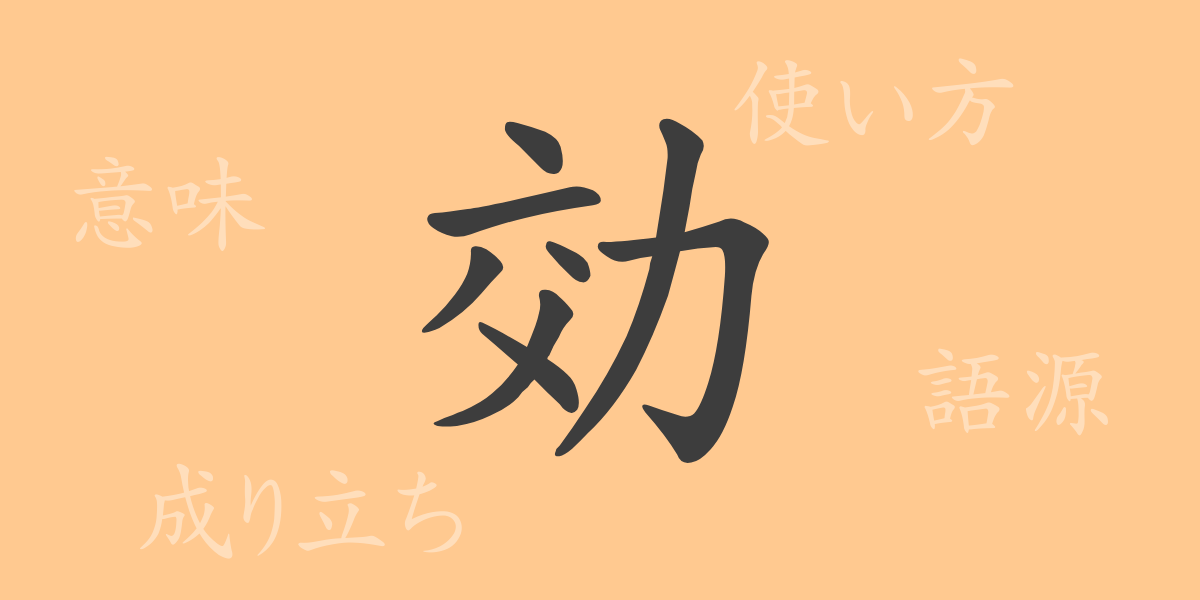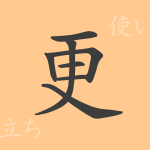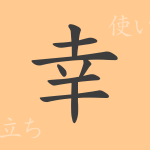In Japanese, kanji are more than just characters for conveying meaning; they also carry deep historical and cultural significance in their shapes and sounds. The kanji “効(こう)” is one of the commonly used characters in daily life. This article delves into the origins, meanings, usage, and idiomatic expressions of “効(こう),” unraveling its full spectrum. By understanding the stories behind words, we can enrich our expressive capabilities.
Origins of 効(こう)
The kanji “効(こう)” is derived from ancient Chinese pictographs, comprising two elements: “力(ちから)” meaning strength or ability, and “交(こう)” meaning to intersect or exchange. Combined, these elements form “効(こう),” symbolizing a state where forces are effectively interacting, hence the meaning “to be effective.” Over history, this character has evolved through various cultures and eras, maintaining its significant role in modern Japanese.
Meanings and Usage of 効(こう)
The primary meanings of “効(こう)” include “to be effective” or “to have an effect,” indicating that some action or influence is yielding tangible results. It is also used metaphorically, as in “効(こう)を奏(そう)す,” to express the realization of intended outcomes. Commonly, it appears in words like “効果(こうか)” (effect), “効能(こうのう)” (efficacy), and “効率(こうりつ)” (efficiency).
Readings, Stroke Count, and Radical of 効(こう)
The kanji “効(こう)” has specific readings and structural elements:
- Readings: The on-yomi (Chinese reading) is “コウ(こう),” and the kun-yomi (Japanese reading) is “き(く)”
- Stroke Count: The character consists of 8 strokes.
- Radical: The radical is 力(ちから), meaning strength.
Idioms, Phrases, and Proverbs Using 効(こう)
Numerous idioms, phrases, and proverbs incorporate “効(こう)” in Japanese. Here are a few examples:
- 効果音(こうかおん): Sound effects created to mimic real sounds in movies or plays.
- 効能書き(こうのうがき): Descriptive documentation of a medicine’s efficacy.
- 効力を奏する(こうりょくをそうする): To effectively exert influence or power.
- 一石二鳥の効を奏す(いっせきにちょうのこうをそうす): Achieving multiple benefits from a single action.
- 口は災いの元となるが、効くこともある(くちはわざわいのもととなるが、きくこともある): While words can cause trouble, they can also be highly effective.
Conclusion on 効(こう)
The meanings encapsulated within a single kanji enable a wide range of expressions depending on context and word combinations. “効(こう)” is frequently used when we aim to achieve something or anticipate results. Gaining a deeper understanding of “効(こう)” through this article can lead to more effective communication.

























